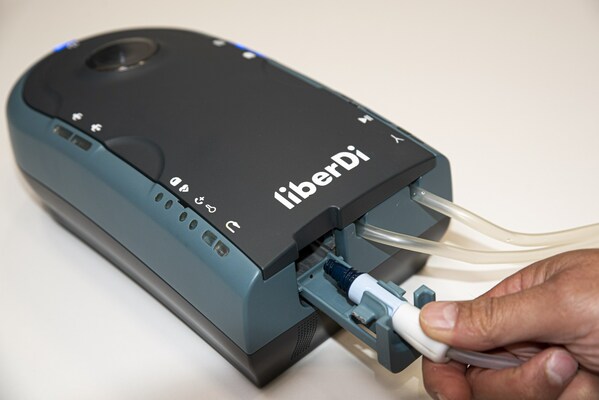

ISRAELI COMPANY LIBERDI INTRODUCES REVOLUTIONARY HOME DIGITAL DIALYSIS SYSTEM
It is estimated that worldwide there are more than 850 million people living with Chronic Kidney Disease (CKD), which is double the number of estimated people with diabetes and more than 20 times the number of estimated people with HIV or AIDS. CKD prevents a person’s kidneys from automatically filtering waste from their blood and is currently treated by a long and tiring process called dialysis, which must be done several times a week and requires the patient to spend three to five hours immobilized during each session, four to seven times a week. Furthermore it is estimated that around 90% of people suffering from CKD spend half of their remaining life connected to dialysis machines and traveling back and forth to the clinics where the units are located. The overall experience is reflected by a marked decrease in quality of life for dialysis patients.
To mitigate and reduce the physical and emotional burden and toll of dialysis, an Israeli company liberDi, based in Or Akiva has developed a full service home dialysis self care system which can be monitored remotely by the patient’s doctors while in use. The company’s team of scientists, engineers and nephrology (kidney) experts devised a system that is scalable and enables patients currently requiring traditional full-service, in-clinic care to perform home dialysis.
The company’s prize winning system has already received regulatory approval from the US Food and Drug Administration (FDA) and is scheduled to be rolled out soon for patients in the United States and Israel. The system is cheaper and less invasive and has a lower potential infection rate than traditional dialysis as it is designed to control the entire process including monitoring, including fluid exchange and even catheter disinfection. The whole process also takes only around 20-25 minutes a session as opposed to traditional 60-90 minutes and eliminates the travel time to and from the clinics. Lastly, the process is easier on the body, is needle and bag free and doesn’t impact the patients blood pressure like regular hemodialysis.
Clinical trials in Israel showed the safety and effectiveness of the system including the very short learning curve needed to use it and can even be used by people with vision impairment. With the cellular digital connection, doctors and nurses can remotely monitor what is happening in real time and receive all the data via the internet ensuring that the treatment received is effective.
Once again, Israeli companies like liberDi show how the start-up nation steps up to help the world!
Source: Israel21C
